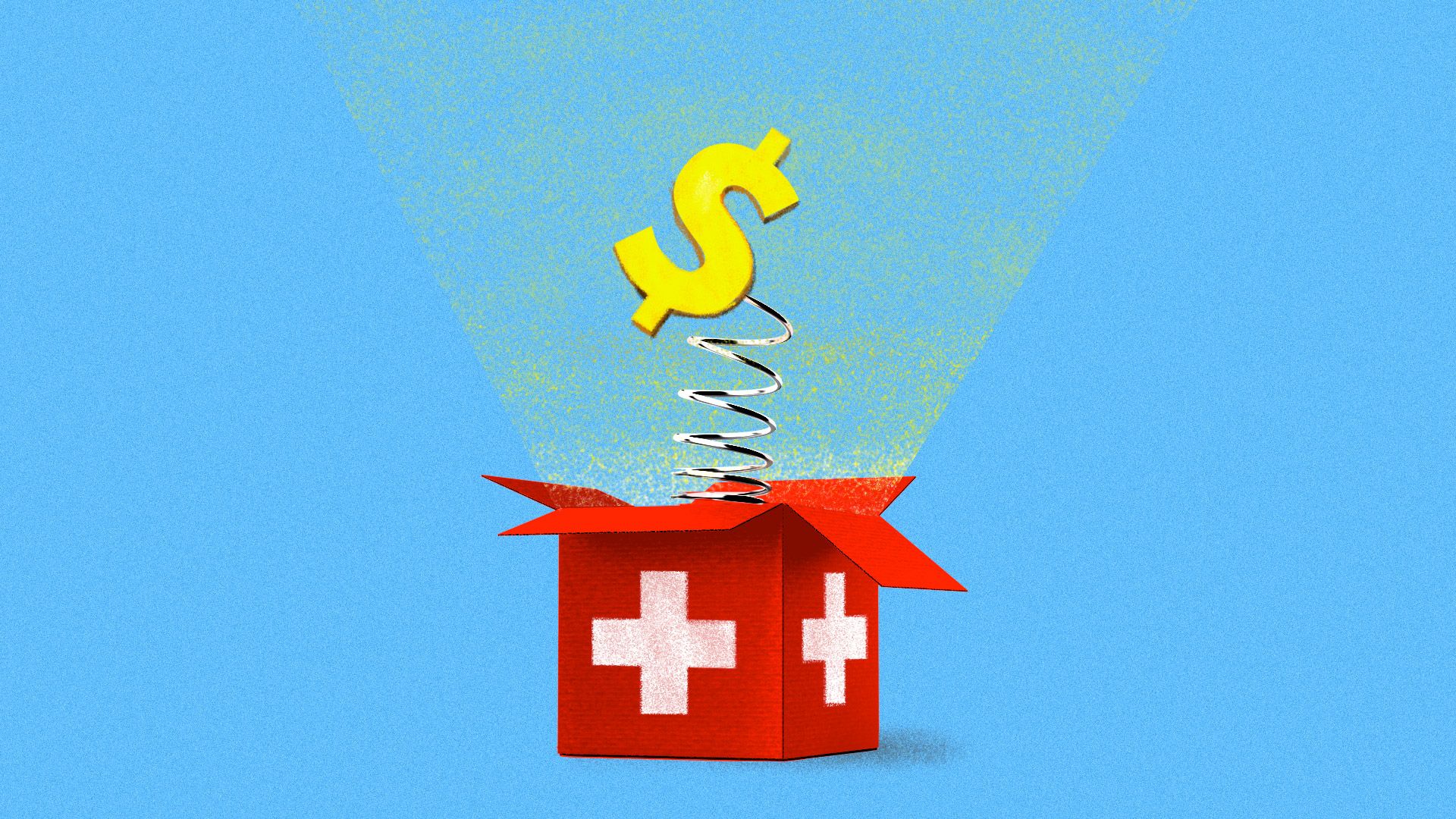Surprise billing may be about to get worse
Add Axios as your preferred source to
see more of our stories on Google.

Illustration: Lazaro Gamio/Axios
The problem of surprise medical billing — which Congress failed to solve last year — is about to get worse, thanks to a feud between an insurance giant and a company that employs thousands of doctors.
The big picture Parents who have babies in intensive care, women with high-risk pregnancies and people who need anesthesia could receive unexpected bills in the mail as a result of the fight between Mednax, the physician-staffing firm, and UnitedHealth Group.
Where it stands: Certain Mednax doctors could be out of UnitedHealth's network as early as March, forcing UnitedHealth customers to pay the full cost if they see one of those doctors.
- Mednax's anesthesiologists, neonatologists and obstetricians will be out-of-network for UnitedHealth patients at staggered dates throughout this year in four states: Arkansas, Georgia, North Carolina and South Carolina.
- Arkansas, Georgia and South Carolina don't have any surprise-billing protections for patients, according to the Commonwealth Fund, while North Carolina has limited protections.
What they're saying: Mednax CEO Roger Medel said on an earnings call that UnitedHealth's terminations "were unilateral, without warning and unprecedented," and that he has reached out to UnitedHealth CEO Dave Wichmann.
- Medel also said Mednax's "administrative costs of processing those bills and the time and stress for patients receiving and resolving these bills will increase meaningfully," and he is "concerned how these actions may interfere with the ongoing discussions in Washington surrounding surprise billing."
The other side: UnitedHealth says Mednax doctors simply charge too much.
- "Mednax's charges are more than 60% higher than the average cost of the other doctors that provide similar services in these states," a UnitedHealth spokesperson said.
- UnitedHealth said it submitted proposals for lower payment rates to Mednax's doctors in Georgia, North Carolina and South Carolina in November and submitted a proposal to Mednax's doctors in Arkansas this month, but never received any counteroffers.
- Mednax sent a statement to Axios saying UnitedHealth presented payment terms on a "take-it-or-leave-it basis" and rejected Mednax's request for a 60-day extension.
While the two sides argue, expect more billing horror stories.
The bottom line: This is the marketplace the industry has built, and it will continue to shock unwitting patients and raise premiums until lawmakers and regulators land on a solution.
